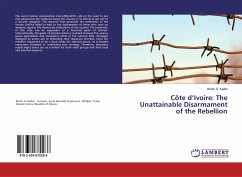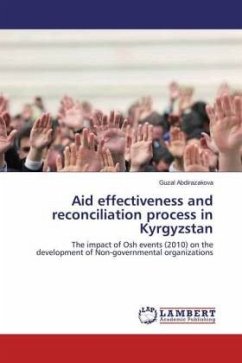The recent Ivorian sociopolitical crisis (2002-2011) calls on the need to put into perspective the obstacles facing the country in its efforts to get out of a security deadlock. The dynamic that governed the settlement of the Ivorian conflict failed to lead to the disarmament of those who took up weapons against the democratic institutions of the country. The resolution of this crisis was an expression of a two-level game of interest. Internationally, the game of external actors is revealed through the various peace agreements and resolutions while at the national level, strategies deployed by actors aim at defending their respective interests. Since the rebellion happened to be a local entity for external actors, its in-theater maneuvers consisted in comforting that strategy. Therefore, disarming rebels might stand out as a defeat for both rebel groups and their local and external supports.
Bitte wählen Sie Ihr Anliegen aus.
Rechnungen
Retourenschein anfordern
Bestellstatus
Storno








